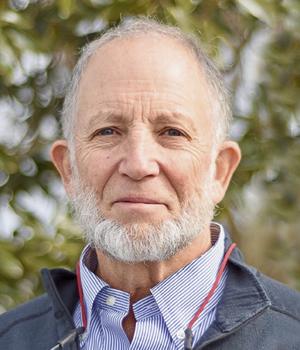Readers have noticed Don Flood's writing recently returned to this space in our Tuesday edition after a hiatus of a few months. We're glad to have Don back. He's a seasoned editor and journalist who has been writing engagingly about politics, and many other subjects, for a few decades.
Don, who lives in Lewes, will be among a number of accomplished writers who will be appearing here on a rotating basis to explore the dynamic world of politics at the local, county, state, national and world levels.
Politics is defined as the art or science of government and governing. The writings we will be presenting will represent lots of different viewpoints and subjects with the common thread being politics.
Geary Foertsch, a Rehoboth resident who has often presented counter arguments to Don's sentiments, has agreed to bring his thoughtful writing to the rotation. Reid Beveridge of Broadkill Beach, also a seasoned political writer, will be appearing from time to time, as will I. Others may also be joining the rotation, so stay tuned.
One goal at the Cape Gazette is to keep our readers informed about the viewpoints and activities of our elected representatives. From federal through to local offices there is no lack of votes and positions to explore. How will their positions and leanings affect our daily lives and futures? That's the responsibility politicians take on when they seek and are elected to public office. Elected, they receive a certain amount of power. It's how they choose to use that power that is often of most interest to their constituents.
I tend to be liberal in my thinking, though not so much as when I was younger. I've heard it said that if you're not a liberal when you're young you don't have a heart, and if you're not a conservative when you're older you don't have a head.
When I was younger and more naive, I thought government had all the answers. Forty years as a journalist have taught me the error of those ways.
I haven't given up on government's role in helping us to live the best lives we can, but I put much more stock these days in individual rights and freedoms. People, individually and in groups, can do great good in their communities and often with greater efficiency than more formalized government. We see those efforts in our pages every week and it's a beautiful thing. But there are areas where government is needed.
Why government exists
For me, government exists to do collectively what we can't or won't do individually, like provide schools to educate our youth, defend our shores and people with an effective military force, provide a strong and fair judiciary system, and build and maintain transportation systems that allow our economies to work. Government should stay out of our private lives and not interfere with the freedom so dear to all of us.
Many years ago a sea captain named John Gay gave me a book titled "The Man vs. The State." A rugged individualist who had little time for government meddling, John watched some of my editorials and hoped, I think, to temper my liberal leanings. The single premise from that book that has stayed with me is this: conservatives like to keep things the way they are; liberals seek change. When liberals succeed in effecting the changes they want, they then become the conservatives - conserving, in the most literal definition of the word.
What I look for more than anything else, from changing or conserving, is how related initiatives will contribute to the peace and stability of our society. A billboard on the Lewes to Georgetown road once proclaimed: "If You Want Peace, Seek Justice." To put it another way, injustice leads to instability. Instability can get very expensive. Think war.
The stock market, a barometer of how our business-oriented society fares, doesn't like instability. Instability foments uncertainty. Justice for all is critical to the stability of our nation, our society, our economy. Think of the closing words of the Pledge of Allegiance, spoken hundreds of thousands of times each day throughout the land.
Government, by necessity, must focus on the allocation of finite resources - our tax dollars. For my money, those resources are better and more efficiently spent on diplomacy and intelligence than on larger militaries and war, and likewise on education, justice, and social programs that keep people advancing and productive, rather than on larger police forces and prisons.
The most fundamental question I can think of when asking a politician about a vote or a proposed program: How will this contribute to the greater stability of our society?
Dennis Forney is publisher of the Cape Gazette and has been a journalist on the Delmarva Peninsula since 1972.






















































